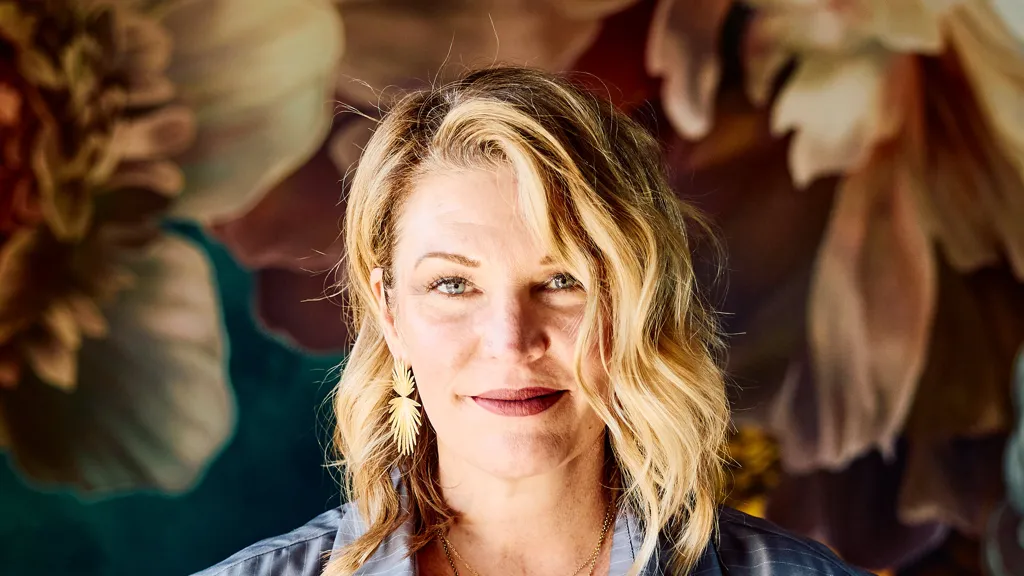When you purchase an independently reviewed book through our site, we earn an affiliate commission.
AWAKE: A Memoir, by Jen Hatmaker
Waking up is something the body does on its own, the conscious mind catching up only afterward. So it is both metaphorically appropriate and unexpectedly moving to discover that "Awake," Jen Hatmaker's lucent and nervy memoir of life after a very public split from her pastor husband in 2020, is not really about divorce. It is about something much bigger, more universal.
That's not to say the details aren't told. "Awake" opens with Hatmaker overhearing her husband dictating an illicit text message in the dead of night, an act that cracked their marriage and their family wide open.
But if "Awake" exists because she suddenly found herself in unwanted middle-aged singleness, its aims are broader. The book is a full-throated praise song to the body: its wisdom, its patience, its trustworthiness, even when society and religion say the opposite.
Hatmaker knows some readers are mainly here for the dirt. Both she and her now ex-husband were well-known authors and speakers on the evangelical circuit, and four of her 14 books have made the New York Times best-seller list; she taught women about the Bible and living a free, grace-filled life in a world of rules.
The collapse of their marriage set off shock waves of speculation and often specious internet snark, sharpened by previous controversies: In 2016, Hatmaker had begun speaking publicly about systemic racism and her support for L.G.B.T.Q. people, positions that got her dropped by her publisher, banned from Christian bookstores and targeted or ostracized by former fans, predominantly white evangelical women.
She writes frankly about these moments in "Awake," along with what she kept private during her divorce. A reader going through similar experiences might find the stories cathartic, though it's also true that Hatmaker was lucky in many ways. She was financially well-off and surrounded by a loving community of friends and family -- advantages that she acknowledges aren't available to everyone experiencing such profound loss.
I think that's why "Awake," wisely, isn't set up as a survival manual. Instead, it's about living life once you've gone past the breaking point, when the scaffolding collapses because the rotten base -- a faulty worldview or a crumbling belief system -- was exposed.
That's just a different kind of divorce, and for Hatmaker, it extended far beyond marriage. "From a wider lens culturally and politically," she writes, referring to white evangelicals' embrace of Donald Trump, "most of what I was taught as gospel standards turned out to be optional values abandoned for power, greed or lies."
"Awake" isn't a political screed. Its focus is inward, on her discovery that her body has always been her truest, safest and most loving home. That makes sense: The shift in her public image began when she started speaking about race, sexuality and gender -- all thoroughly embodied realities.
Most chapters are brief, flitting between the post-divorce timeline and her youth. At first they seem loosely strung together, like anecdotes told over a glass of sparkling wine on a hot summer day. Her voice is chatty and wry and a little self-deprecating: In junior high, she recalls, “I comb my short feathered hair until I resemble something between a middle-aged accountant and a softball coach.” One late chapter in the book is entitled “A Love Note to Zoloft.”
Gradually, a thematic logic emerges: Each memory reveals how she learned her body and its desires were untrustworthy, or wrong, or “too much.” She absorbed the lesson that to love the world — “road trips and fresh summer peaches and sandy beaches and beautiful stories” — is to love God less. “I guess we follow God until every enjoyable thing we ever wanted evaporates,” she writes.
That suspicion extended to sex and bodies — the foundation of a culture that demonizes and punishes women through purity codes, dieting and blame, and provided the seed for her own marriage’s breakdown. Barely in her teens, Hatmaker remembers hearing a youth leader give a talk about the “perils of heavy petting and spaghetti straps,” and then “all of a sudden, I am hyperaware of my body and burning with shame.”
Stories like these demonstrate the ways that secular diet culture and religious purity culture alike cast shadows far into adulthood. “It is a complex endeavor to examine the various systems that encouraged teenagers to get married, defer to men, distrust their bodies, and diminish their own gifts,” writes Hatmaker. “What kind of ground allows for such shallow roots? Some combination of patriarchy plus religion; gender roles plus groupthink; power plus exclusion became the soil in which my marriage ultimately died.”
The word "awake" can be a description: Yes, I am now awake! Or it can be imperative: Sleeper, awake! Here, Hatmaker is going for both. She finds her body now alive, and her mind able to follow. Turning directly to her audience, then, she asks us to touch skin to skin. "Here, grab my hand, reader," she writes. "Let's abandon that rotting ship and turn our faces to the sun."
AWAKE: A Memoir | By Jen Hatmaker | Avid Reader Press | 320 pp. | $27
